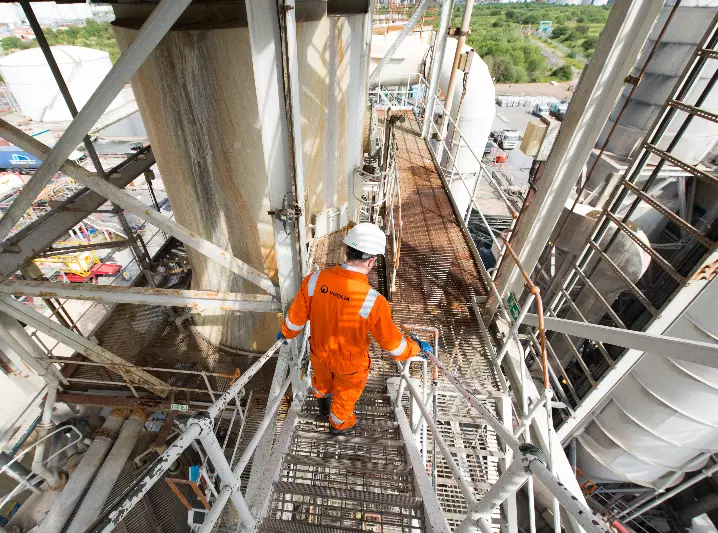In 2014, the world faced a critical challenge: safely disposing of Syria's chemical weapons stockpile.
This Syrian chemical destruction project showcases the successful collaboration between government, industry, and international organisations in addressing a complex global security challenge.
The challenge
In 2014, the international community faced the task of safely disposing of Syria's chemical weapons stockpile, including materials intended for nerve agent production. The UK agreed to destroy approximately 15% of the declared Syrian chemical stockpile, comprising "B precursors" and hydrochloric acid, as part of a global effort to eliminate these dangerous materials.
The solution
The UK government partnered with Veolia to utilise their High Temperature Incinerator at Ellesmere Port for the destruction of the Syrian chemical materials. The process was conducted under strict verification procedures of the Organisation for the Prohibition of Chemical Weapons (OPCW) to ensure safety and compliance with international standards.
The result
The operation at Ellesmere Port proved highly successful, with approximately 190 tonnes of Syrian chemical material safely incinerated at the facility. Demonstrating remarkable efficiency, the entire destruction process was completed within just three weeks of the chemicals' arrival in Britain. This swift action not only fulfilled the UK's commitment to destroy its allocated portion of the Syrian chemical stockpile but also made a significant contribution to the broader international effort. The project seamlessly integrated with similar destruction initiatives taking place in the USA, Finland, and Germany, showcasing a coordinated global response to this critical security challenge.
The project highlights the enduring importance of such services in promoting global security, protecting human lives, and fostering a safer world for generations to come.
Further information
- The B precursors are two industrial grade chemicals which, if combined with chemicals known as A precursors, produce nerve agents. As a safety and security precaution, the type A and type B precursors were never transported by the OPCW together.
- The UK offered to destroy the entire batch of B precursors on behalf of the OPCW, using an existing MOD contract with Veolia. Subsequently, the OPCW requested the UK destroy an additional 44 tonnes of hydrochloric acid and six tonnes of hydrogen fluoride. The completion of incineration operations marks the end of Veolia’s involvement with this task.
- The hydrogen fluoride was not suitable for incineration by Veolia and was chemically neutralised by a second UK business.
- The chemical stockpile declared by the Assad regime comprised some 1300 tonnes. Part of the remainder was destroyed at commercial facilities in Finland and the United States, whilst the chemicals posing the greatest concern were hydrolysed at sea aboard the US ship Cape Ray. The resulting less harmful effluent was subsequently destroyed in Germany and Finland.
- The effort to remove the Syrian chemical stockpile had been led by the OPCW, with significant contributions from several nations. Denmark and Norway led the maritime task force which transported the chemicals out of Syria; Russia and China contributed naval escorts needed for security off the coast of Syria; the Royal Navy also provided naval protection in the eastern Mediterranean; Finland provided specialist technical expertise; Italy provided a port for transhipment of material; and the USA, Germany and Finland all contributed to the subsequent safe handling and destruction of the chemicals.
Do you face challenges with hazardous and chemical materials?

Value Delivered:
- Enhanced global security by eliminating materials that could have been used to produce chemical weapons.
- Demonstrated international cooperation in addressing a significant threat to human rights and safety.
- Showcased the UK's technical capabilities in safely destroying hazardous materials.
- Contributed to the enforcement of international chemical weapons conventions.
- Supported efforts to hold the Assad regime accountable for its actions and protect Syrian civilians.
- Paved the way for further investigations into remaining chemical weapons concerns in Syria.


